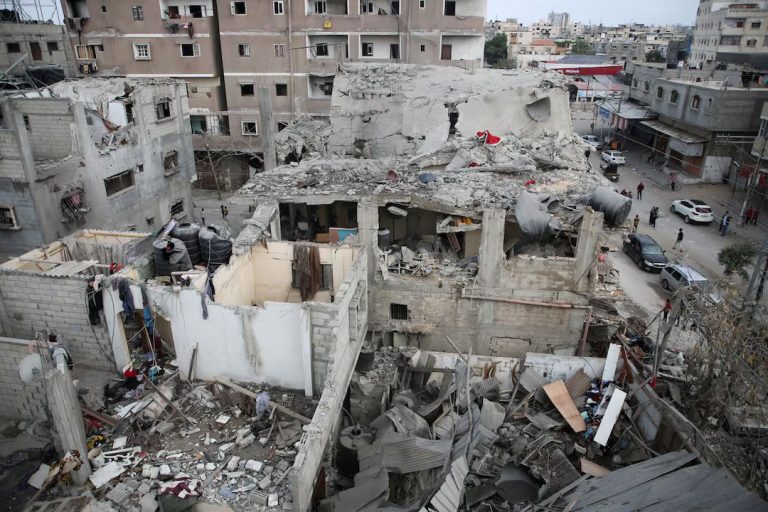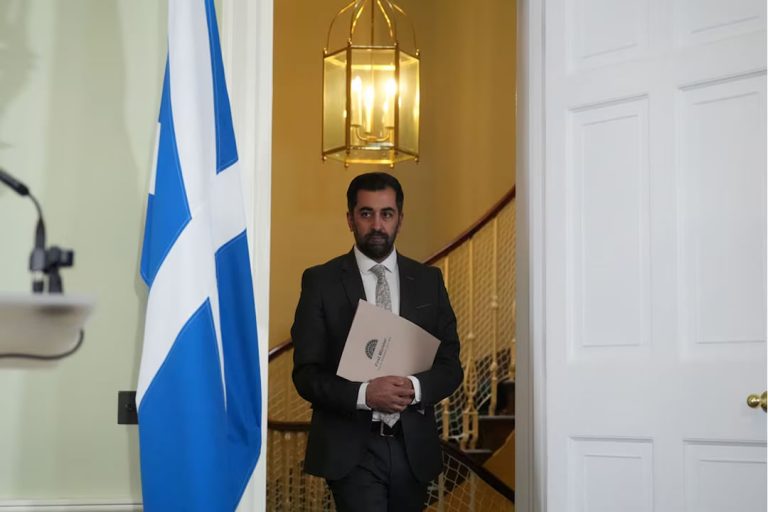
Mark lute, the Prime Minister of the Netherlands, together with Charles Michel, President of the European Council, Emmanuel macro of France and Pedro Sanchez, President of the Spanish government, jointly issued a statement at the meeting of the European Council. Brussels. Mark lute, Prime Minister of the Netherlands, and Charles Michel, President of the European Council, CO presided over the meeting. Statements by French President Emmanuel Malone and Spanish government president Pedro Sanchez at the meeting of the European Council Francesco, Brussels Dry
The heads of state and government of the European Union reached an agreement early Tuesday to launch a billion dollar economic recovery plan after four days of marathon negotiations following a coronary pandemic.
“All right.” The president of the European Council, Charles Michel, announced on twitter at 5.31 a.m. on Tuesday (3.31 GMT) that at the end of a summit that began last Friday morning.
The agreement provides for the establishment of a euro 750 billion common debt recovery fund. As a result, it reduced direct aid to $390 billion and increased loans to $360000 to break the deadlock in the so-called “fruit” countries.
The strategy to get out of the recession will also be supported by a budget of 174 million euros for the period 2021-2027.
European history day On twitter, French President Emmanuel macron held a celebration.
“We have agreements and good agreements (…). The European Union has never decided to make such an ambitious investment in the future, “Belgian Prime Minister Sophie wilme said in the same social network.
C. Cut aid
In order to achieve the Convention, preferences must be given to self styled “fruit” countries – the Netherlands, Austria, Denmark and Sweden – and Finland has joined the ranks, which have succeeded in reducing aid levels, strengthening aid controls and maintaining discounts on budget allocations.
These are the most controversial issues in the negotiations, as well as proposals to link the receipt of budget funds to respect for the rule of law.
Root, in Brussels
Who are fruit countries, why are they called, and what do they want?
Big countries such as France, Germany, Italy and Spain, like most of the 27 countries, require subsidies of at least 400 billion euros, while fruits require 350 billion euros.
Finally, this commitment is closer to the first figure, but compared with the European Commission’s proposed 500 billion euro (plus $250 billion in credit), direct aid has decreased by 110 billion euros, resulting in reduced funding for a number of community programmes supported by the European Commission. Background.
The agreement also strengthens control over direct aid to the Netherlands, which requires countries to veto their partners’ reform and investment plans, while the European Commission recommends that decisions be taken only at the technical level.
On the other hand, fruit’s discount in its budget allocation has increased because their contribution exceeds what they get.
















+ There are no comments
Add yours